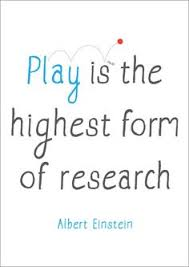Free-flow play is play that the children themselves choose to do, how they want to do it and when to finish it and without any goals set by an adult. The adult provides the space, the security and the resources.
So, you think of free flow play and you probably think they can just do whatever they want? Well, you’re not exactly wrong.
But then what are the benefits I hear you ask? Well, let me tell you. So, in no particular order:
1) It allows children (through role play/drama etc) to process and re-enact their experiences. This could be playing shops, ‘eating’ dinner etc. This enables them to develop social skills and how to interact with others, make sense of different situations, empathise and begin to see things from a different perspective, develop an awareness of other cultures, take turns and share, problem solve, negotiate…
2) It allows children to learn all they can about an object. Through manipulation and engagement, the children can explore objects and learn their properties such as what it can or can’t do, how it fits in with something else and its many different uses. It may just look like a piece of wood to you, but to a child it could be anything!
3) It can give the children a “can do” attitude. Children often learn through trial and error. When children are given the opportunity to struggle and fail it enables the child to develop more social and emotional skills such as perseverance, to try change tactic and try things from a different approach. This attitude gives them more confidence whereby they are more likely to try new things. The adult’s role in this is to act as a guide as opposed to giving the answers as well as give praise and encouragement. With children, it isn’t always about the destination, it is about the journey.

4) The children’s physical skills are also being developed. Whether that be fine motor skills when manipulating an object or doing some mark making. It could also be gross motor skills such as running, jumping, climbing, pushing, pulling etc. These link back to learning through trial and error and perseverance as well as creating their own games and setting their own rules etc.
5) Communication skills are being developed especially once friendships are formed. Children teach each other more than we even realise whether it be new words or phrases or talking about their own home life. What if one child has siblings and the other child doesn’t?
Other communication skills that are being learnt are when to talk and when to listen which are such valuable skills. And if an argument happens, in comes the practitioner with their support to teach the problem-solving skills such as “what could we do to solve this problem?” or “what could you do to make your friend feel better?”
Well, what is our role as adults in all of this then?
Well, as mentioned the adult is there to offer guidance and support when needed and can aid the children in developing the skills to solve issues by themselves. It is also the adult’s role to know when to extend the children’s play and to spark their curiosity. This can be done in such simple ways. The adult could use questions such as “I wonder what would happen if…?” This works with so many scenarios. For example, when playing with shapes. “I wonder what will happen if I put these two squares together…” or “I wonder what will happen if I mix this colour with this colour?” Or we as adults could just sit back, observe and introduce a new object to explore without saying a word, allowing the child to explore on their own terms and provoke ideas to test and challenge.
It is also the adult’s role to ensure that the environment is full of opportunities and that the environment is maintained. The environment is after all the third teacher in the Reggio Emilia approach. This is also why we like to limit the amount of traditional toys we have and instead provide more natural open ended resources. This is because a toy is very often one dimensional. A robot is a robot. But what if we were to provide junk modelling? One child could make a robot, the other a rocket or a castle! A plank of wood could be a road, a path, a phone, it could be used to make a bird house, a bridge, a balancing beam. We will be writing a post in the near future about this very topic and how amazing loose parts can be!
I hope we have shown you how important free play can be and why we choose to follow it within Squirrel Lodge. It can spark curiosity, provoke thought, build confidence and most importantly of all is led by the child.
Watch this space for more posts.
Josh and the Squirrels
X




Comments